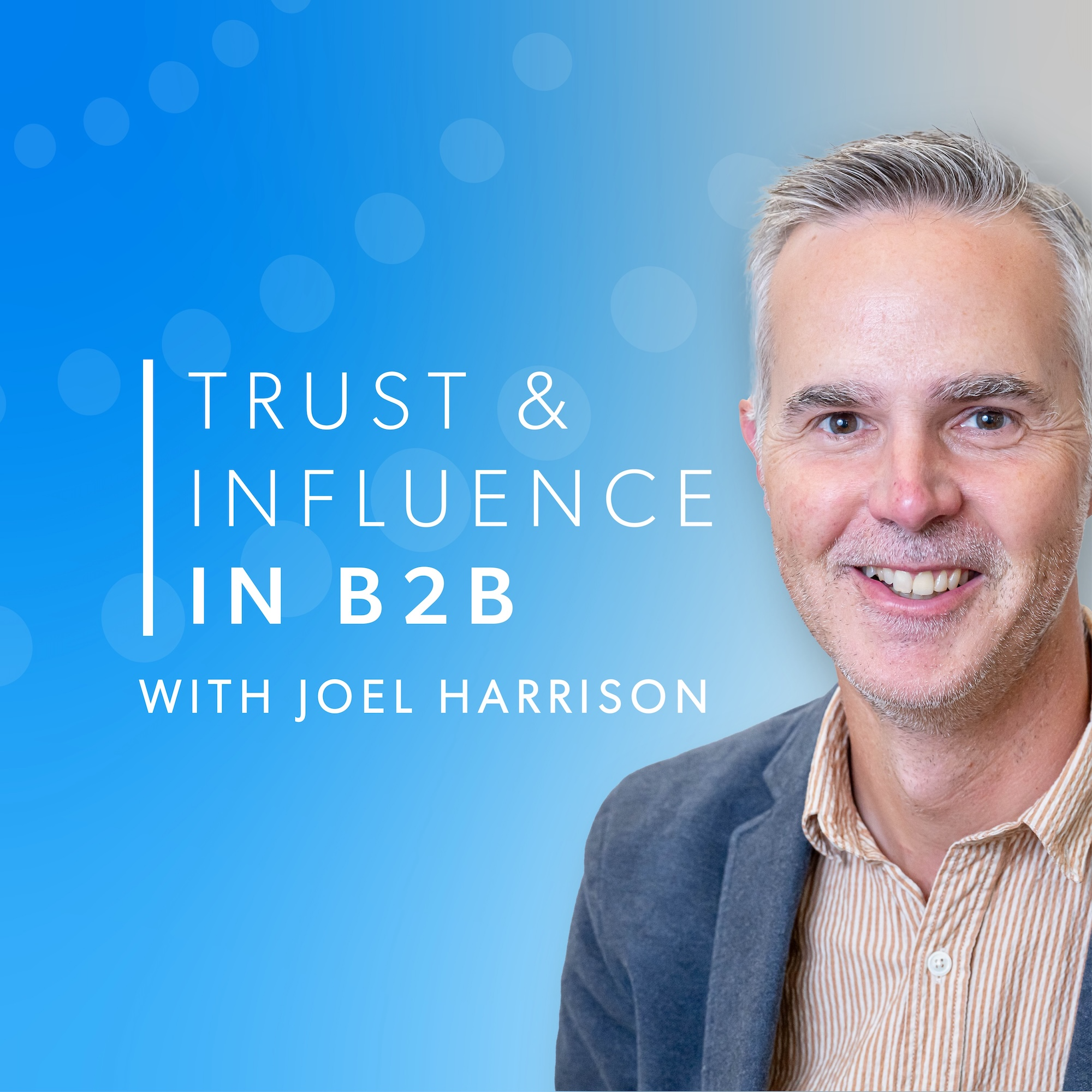Episode 6
Mindshare before market share: The strategic imperative of thought leadership in complex B2B - with Claire Mason of Man Bites Dog
For the past two decades, Claire Mason has been at the forefront of thought leadership in B2B marketing. As the founder and CEO of Man Bites Dog—celebrating its 20th anniversary in 2024—Mason has pioneered an approach that transforms intelligent ideas into business growth for complex B2B brands.
In this episode of the 'Trust & Influence in B2B' podcast, host Joel Harrison speaks with Mason about her journey establishing "the world's first thought leadership consultancy" and explores how organizations can harness thought leadership to build authority, differentiate their offerings, and drive measurable commercial outcomes in today's market.
Topics Covered
- The origin story of Man Bites Dog and its evolution from "PR agency by stealth" to specialized thought leadership consultancy
- Research findings on how C-suite leaders consume and trust B2B thought leadership
- The thought leadership classification system: thought makers, thought shapers, and thought followers
- Examples of successful thought leadership campaigns, including Arcadis' Sustainable Cities Index and Intel's Sustainable CTO initiative
- How thought leadership bridges the gap between brand building and sales enablement
- The role of centralized content assets in creating alignment across organizations
- Common pitfalls that undermine thought leadership effectiveness
- The impact of AI and emerging formats on thought leadership strategy
Key Conclusions
- B2B brands have emerged as trusted sources of information: Mason's research shows that "97% of C-suite leaders are consuming content from B2B brands every week, more than half of them daily." Remarkably, these executives now trust content from B2B brands more than media, government, or public institutions.
- Thought leadership directly influences buying decisions: "74% of C-suite leaders always consider a strategic supplier's thought leadership when making a buying decision," underscoring its importance throughout the sales cycle. Rather than merely generating awareness, effective thought leadership guides prospects from initial engagement through to purchase.
- Bold, differentiated ideas drive greater impact: Mason emphasizes that "having a bold idea, it will travel further. The more you dilute that idea, it becomes kind of homeopathy and is no longer bold." Organizations that develop distinctive perspectives on industry challenges achieve significantly better results than those recycling conventional wisdom.
- Future-focused content creates competitive advantage: "You don't want to market where you are today. You want to market what you want to be for clients in the future," Mason advises. By addressing emerging challenges rather than just current pain points, companies can differentiate themselves in crowded markets and position themselves as strategic partners.
- Alignment is critical for organizational impact: With many companies housing numerous experts, Mason stresses the importance of creating "a golden thread that joins everything up." Without this alignment, individual thought leadership efforts may fragment rather than reinforce the brand narrative.
For organizations selling high-value, knowledge-based solutions, thought leadership has evolved from a peripheral marketing activity to a central business strategy. As Mason concludes: "You're only as good as the thinking that you're sharing. And I think a lot of companies really have a lot of work to do to make sure they're really showcasing the intelligence that they're selling in the right way."

